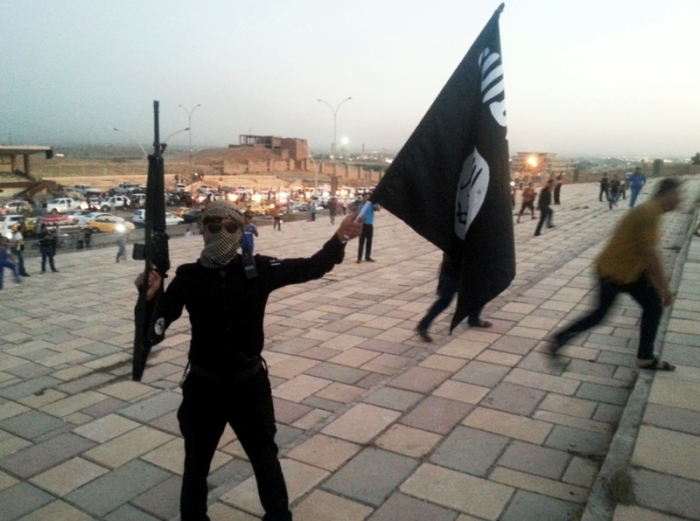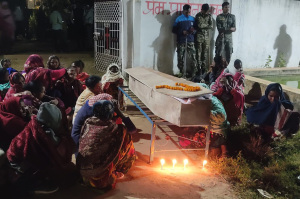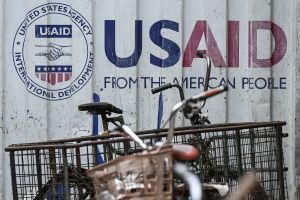Is ISIS More Violent Than al-Qaeda?

When comparing the terrorist group Islamic State of Iraq and Syria (ISIS) and al Qaeda, experts on international terrorism say that one should be careful in saying that one group is more violent than the other.
John G. Horgan, professor at University of Massachusetts Lowell and director of the Center for Terrorism & Security Studies, told The Christian Post on Thursday that he doubted the claim that ISIS was necessarily more violent.
"We seem to have short memories when it comes to Al Qaeda. I'd caution against thinking of Al Qaeda as somehow 'softer' face of violent Islamism," said Horgan.
"Al Qaeda learned that unrestrained, indiscriminate violence can be counter-productive. In fact, that was the catalyst for major tension within that movement. Whether ISIS will learn that lesson, or whether they even care, remains to be seen."
Horgan also told CP that "ISIS' savagery seems unparalleled in part because we have instant access to it."
"There's no question that ISIS embraces and immortalizes physical savagery in a way we rarely see in terrorist groups," said Horgan. "Their supporters are thriving on social media. They revel in the disgust we express when faced with something like the awful murder of Mr. Foley."
In recent weeks ISIS has made international headlines for its gruesome violence against religious minorities and civilians in Northern Iraq and war-torn Syria, including beheadings and reportedly cutting children in half. This has prompted many to consider ISIS to be more violent than al Qaeda, the militant Islamist group founded by Osama bin Laden.
Formed out of the former al-Qaeda affiliate al-Qaeda in Iraq in 2013, ISIS has conquered much territory in both Iraq and Syria over the past several months.
They have threatened to exterminate Christians and Yazidis in Northern Iraq, having forced large numbers of minority communities from their homes.
For a time, ISIS controlled the Mosul Dam, Iraq's largest dam, which could have been used as a "weapon of mass destruction" against Iraqi civilians.
Daniel Byman, Georgetown University professor and research director of the Saban Center for Middle East Policy at the Brookings Institution, recently wrote for The Washington Post about the differences between al Qaeda and ISIS.
"Al-Qaeda and IS differ on tactics, strategy and leadership. IS leader Abu Bakr al-Baghdadi embraces beheadings and crucifixions, and he focuses on local regimes and rivals, ignoring [al Qaeda leader Ayman al-Zawahiri's] credo of hitting the 'far enemy' – the United States," wrote Byman.
"These differences came to a head in Syria, when Zawahiri designated the relatively more restrained Jabhat al-Nusra (JN) as al-Qaeda's local affiliate. Baghdadi believes that his group should be in charge of jihadist operations in Iraq, Syria, Lebanon and Jordan. The two groups turned on each other, with their infighting reportedly killing thousands."
Michael Ryan, adjunct scholar at the Middle East Institute and expert on al-Qaeda, told CP that he did "not think ISIS is more violent than al-Qaeda."
"The 9/11 attacks, the London and Madrid bombings had more mass casualties and AQ videotaped beheadings in Saudi Arabia during the 2003-2005 terror campaign there," said Ryan.
"It is true that al-Qaeda affiliates in Syria seem less violent, but this is tactical and many counterfactuals could be cited."
Ryan believed that ISIS seemed more violent because they have "weaponized information by publicizing their brutality in a lurid way as a means of terrorizing potential victims."
"By sheer reputation for brutality, the organization was able to take over cities and villages without much of a struggle beyond the softening-up terrorist bombings and assassinations," said Ryan.
"This method has obtained a reputation for being formidable soldiers which they do not really deserve. Properly armed, the Peshmerga for example have been able to defeat them in Syria and Iraq in straight-up battles."
While Ryan did not consider the ISIS war machine to be as effective as their reputation makes it, he did believe that if left unchecked they could "become more formidable."
"If ISIS is allowed to consolidate its territorial gains and continue to recruit fighters, we might expect them to become more formidable," said Ryan to CP.
"Like all jihadist groups, ISIS follows Maoist guerrilla warfare strategy, which involves graduating at some point to conventional military forces. I believe they are that stage now."





























